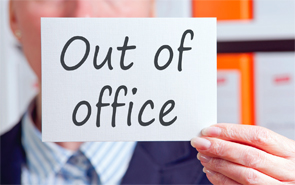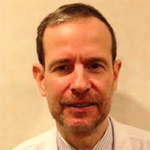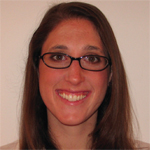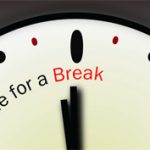
docstockmedia/shutterstock.com
A recent JAMA Pediatrics article found that 83% of clinicians admitted to coming to work while sick and 95% admitted to knowing that it could be dangerous for their patients.1 “The decision to work sick is shaped by systems-level and sociocultural factors,” the study authors wrote.
In speaking with rheumatologists on the matter, I found they seem to typify the study’s findings of rarely calling out sick.
“In more than 20 years, I have only taken a sick day twice,” says Stuart Kaplan, MD, chief of rheumatology, South Nassau Communities Hospital, Oceanside, N.Y. “One was after I broke my foot. I took the day off to see an orthopedist and then returned to work on crutches for the next six weeks. The other time was when I had the flu and almost passed out at work. I went home to bed and returned to work the next day.”

Dr. Kaplan
Alexa Simon Meara, MD, clinical instructor and a rheumatologist at The Ohio State University Wexner Medical Center, Columbus, Ohio, says the only time she has taken a sick day was when her water broke during a pregnancy.
“I was teaching medical students,” she recalls. “I had rounded that morning on a busy internal medicine inpatient service and had not finished my notes. While sitting in a hospital bed having contractions every three minutes and attached to a tocometer, I borrowed the nurse’s computer on wheels and staffed all of my residents’ progress notes from earlier that day.”
Evan Leibowitz, MD, MS, rheumatologist, Prospect Medical Offices, Midland Park, N.J., says he must be extremely ill to miss a day of work. “Symptoms of vomiting and diarrhea have kept me out of the office twice in the past four years,” he says.
Elyse Rubenstein, MD, rheumatologist, Providence Saint John’s Health Center, Santa Monica, Calif., says she has not taken a sick day in more than 10 years. “If I do not feel well, I will push through,” she says.
Calling out sick is a significant inconvenience for patients and could even jeopardize their health, says Dr. Kaplan. “Physicians are trained to put patients’ interests before their own needs,” he says. “We are used to working under strenuous conditions, including when we are sleep deprived or not feeling well. In most cases, there isn’t anyone else in the practice who can pick up the slack and see all the patients who were scheduled to see the absent doctor. It may take weeks for those patients to get a new appointment.”

Dr. Meara
Dr. Meara concurs. “As physicians, not trying to be martyrs, we respect how difficult it is for patients to get appointments and often how far patients have to commute to see us. We know that patients have rescheduled their day or week to make appointments or surgeries, made childcare arrangements and so forth. Therefore, we do not want to cancel unless we really have to,” she says.
In addition, making a patient unhappy can have consequences that affect a physician’s reputation. “Medicine has changed due to social media and patient satisfaction scores; we are ultimately judged by our patients,” Dr. Meara says. “If we cancel due to illness, then patients have to reschedule, causing our patient satisfaction scores to potentially drop.”
In addition to having an impact on patients, taking a sick day affects fellow physicians. “I do not like to burden my fellow rheumatologist partners with patient phone calls, medication refills, and laboratory results and other documents to review,” Dr. Leibowitz says.
As a solo practitioner, Dr. Rubenstein does not have any coverage if she stays home sick. “If I have a headache or something small, I come to the office and make do,” she says.
Overcoming Challenges
It’s important to have a plan in place to deal with a sudden absence. “First of all, patients should be notified as soon as possible so that they can rearrange their schedules if necessary,” Dr. Kaplan says. Second, “time slots should be reserved in the schedules of covering physicians to accommodate any urgent patients. This may even require rescheduling some non-urgent patients of the covering physicians.”
Care should be taken to not overburden the covering physicians, because this is not in the best interest of patients, Dr. Kaplan continues. Nurses or other support personnel can assist canceled patients by arranging for medication refills or urgent needs that will hold the patient over until they can be seen.

Dr. Leibowitz
Dr. Leibowitz has some built-in flexibility; for the past two years, he has taken Thursdays off. “If needed, I will work a Thursday to accommodate patients who had to be rescheduled as a result of a sick day,” he says.
Having a good working relationship with his partners makes it easier to accommodate patients. “If one of us has to be out, we have a system to assign coverage to one of the rheumatologists who is working in the office,” Dr. Leibowitz says. “If there are major clinical decisions to be made, we are comfortable calling and texting each other on the fly.”
In addition, having an electronic medical record system has helped the matter. “It is somewhat easier to be away because of it,” Dr. Leibowitz says. “I can log on remotely and take care of many of my own coverage tasks as if I were in the office. However, if I am sick, I should focus on resting and getting better. There is a fine line regarding how often and when to log in. It is a personal decision that each of us has to make.”
Karen Appold is a writer in Pennsylvania.
Little Support for Sick Docs
Despite the burden a doctor’s unexpected sick day might impose on patients, staff and colleagues, some physicians say it’s warranted and advisable.
“We should take off from work if we are too sick to care for our patients,” says Evan Leibowitz, MD, MS, rheumatologist, Prospect Medical Offices, Midland Park, N.J.
Stuart Kaplan, MD, chief of rheumatology, South Nassau Communities Hospital, Oceanside, N.Y., agrees. “While a strong work ethic is commendable, it is not always in the best interest of the physician or his patients to work when ill. A sick doctor is putting his patients at risk of catching whatever contagious infection he might be harboring. In addition, working while ill may prolong the illness. Therefore, it is important for physicians to know that if they are sick, they should heed their own advice and stay home and rest until they feel better.”
But the bottom line is that there aren’t any incentives for physicians to take care of themselves, says Alexa Simon Meara, MD, clinical instructor and a rheumatologist at The Ohio State University Wexner Medical Center, Columbus, Ohio. In fact, the opposite is true. “If physicians produce more (i.e., see more patients, do more surgeries and publish more papers), physicians are rewarded. If I want to see a physician myself, I have to either take a vacation day off or block my clinic early [decreasing patient access],” Dr. Meara says.
Although Ohio State University creates incentives by locking in a lower premium fee for health insurance if physicians receive an occupational health check yearly (i.e., vital signs, blood glucose and lipid panel), the policy does not mandate that physicians follow up on the results. Thanks to the Family Medical Leave Act (of 1993), employees—including physicians—can take leave if they are sick without losing their job. “However, these policies do not help physicians with the day-to-day virus, gastroenteritis, flu and so forth,” Dr. Meara says. Because of this, it is more work for a physician to cancel clinic or a day of surgeries and to find coverage for being sick, than to go to work in a less-than-healthy state, despite the potential risk to patients. “With the nature of medicine becoming more and more consumer and market driven, there is no room for physicians to be sick … so I guess I just won’t get sick,” Dr. Meara concludes
Culture Change Needed
The practice of physicians not taking sick days is well known and largely overlooked. In 1997, the Journal of Public Health examined the habits of government employees in taking sick days and found that physicians often took fewer sick days than employees in other fields.1 The reasons physicians identified for not calling in sick included that the “work could not wait or cannot be delegated,” and a “reluctance to burden their partners.”
In 2001 and 2002, researchers Rosvold and colleagues looked at physicians’ illness behaviors in Norway and showed that they often treat themselves and use their colleagues for medical advice instead of establishing a relationship with a primary care doctor or taking sick days.2 Dr. Rosvold reported that physicians use the least amount of sick leave compared with other hospital employees, and the reasons for physicians not taking sick days were similar and unchanged from the 1997 report. He noted that finding a “stand in” or substitute was difficult for physicians, whether one practiced in a university setting or private practice.3
“Not much has changed in the landscape of medicine, where more volume means more profit,” says Dr. Meara. A recent issue of JAMA Pediatrics featured two articles exploring why physicians don’t take sick leave and the risks that this tendency imposes on patients.4,5 “The top reasons for physicians working while sick were related to inconveniencing their colleagues and the problem of not having enough staff to cover their patients, which is very similar to the articles written close to 20 years ago,” she says.
“Currently, doctors see a high volume of patients, making a sick day beyond inconvenient as explored in the JAMA Pediatrics article,” Dr. Meara says. “Physicians, therefore, find it easier to work sick.”
Another less-often-discussed topic is the overarching theme in the culture of medicine that physicians are a group of strong heroes who get the job done. Researchers Starke and Jackson in JAMA Pediatrics discuss how physicians are demeaned when taking sick days: When a group of physicians are together, they tell each other about their worst call, best save, why they finally had to call off or what they did to not call off. Physicians are rewarded for working very hard.4
“I echo their sentiment. There is a need for culture change to support appropriate paid sick leave without punitive repercussions,” Dr. Meara concludes.
References
- McKevitt C, Morgan M, Dundas R, et al. Sickness absence and ‘working through’ illness: A comparison of two professional groups. J Public Health Med. 1997 Sep;19(3):295–300.
- Rosvold EO, Bjertness E. Illness behaviour among Norwegian physicians. Scand J Public Health. 2002;30(2):125–132.
- Rosvold EO, Bjertness E. Physicians who do not take sick leave: Hazardous heroes? Scand J Public Health. 2001 Mar;29(1):71–75.
- Starke JR, Jackson MA. When the health care worker is sick: Primum non nocere. JAMA Pediatr. 2015 Sep;169(9):809–810. doi: 10.1001/jamapediatrics.2015.0994.
- Szymczak JE, Smathers S, Hoegg C, et al. Reasons why physicians and advanced practice clinicians work while sick: A mixed-methods analysis. JAMA Pediatr. 2015;169(9):815–821. doi:10.1001/jamapediatrics.2015.0684.
Reference
- Szymczak JE, Smathers S, Hoegg C, et al. Reasons why physicians and advanced practice clinicians work while sick: A mixed-methods analysis. JAMA Pediatr. 2015 Sep;169(9):815–821.

